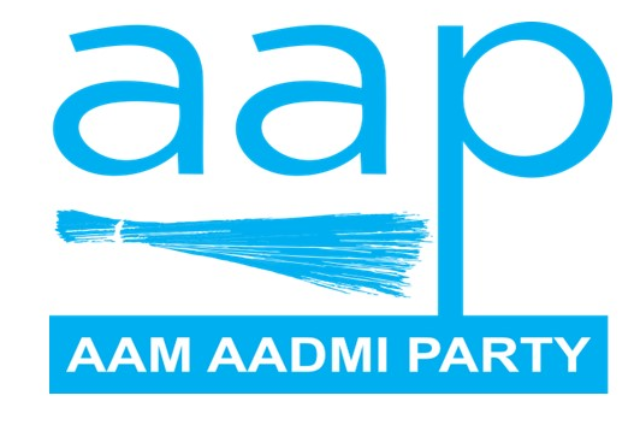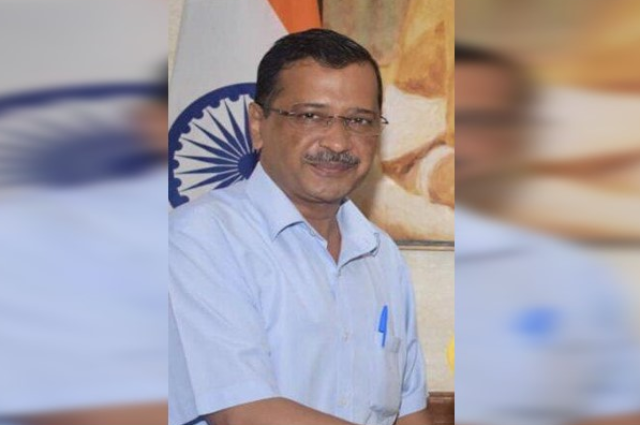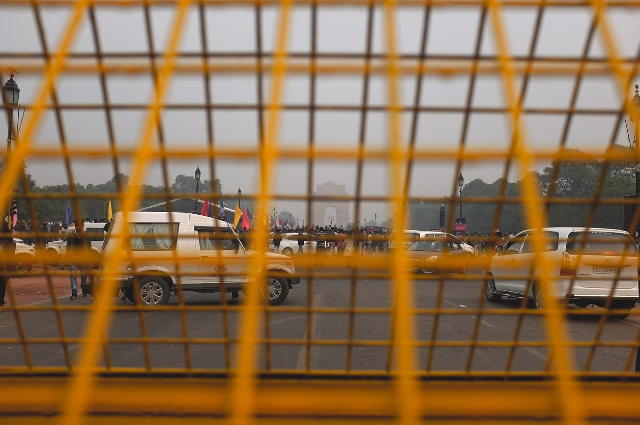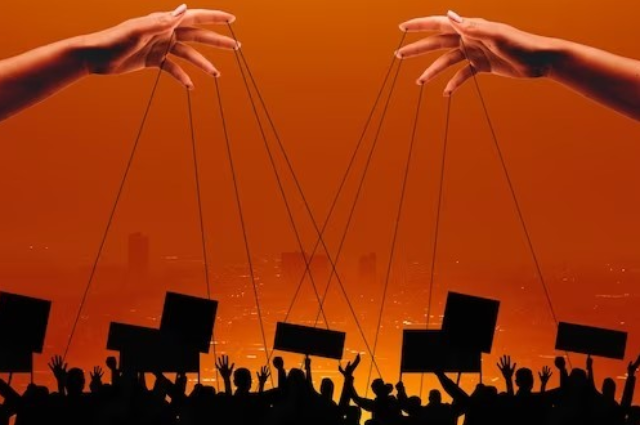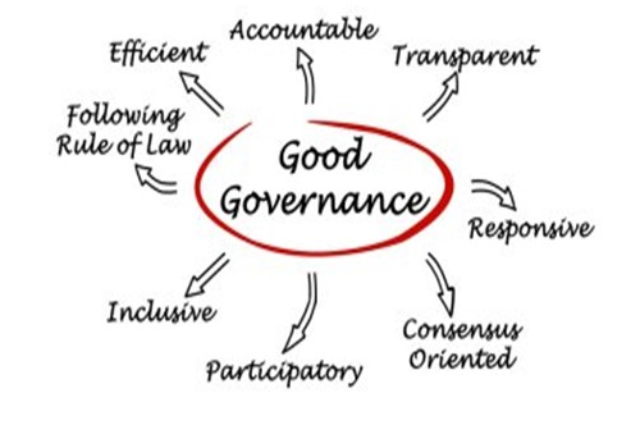Introduction
Chief Minister Arvind Kejriwal's recent arrest during the ongoing tensions between the Delhi government and the central authorities marks a significant moment in quasi-federalism for the government. While it's essential for legal procedures to be followed regarding the allegations against him, the arrest reflects a deeper political rivalry that has been there since the emergence of the Aam Aadmi Party (AAP) in 2012.
The AAP's rising in the anti-corruption movement which shook the Manmohan Singh-led UPA government and paved the way for Narendra Modi's BJP to come to power quickly evolved into a conflict between the AAP and the BJP. This conflict has seen power struggles, attempts to undermine the Delhi government's authority and legal battles.
His arrest is seen by some as ironic, considering his background as an anti-corruption activist. The BJP likely hopes that by removing Kejriwal from the electoral picture, they can diminish the appeal of his political vision which emphasises grassroots governance and public service reforms, particularly in education and healthcare.
However, Kejriwal's arrest also poses broader questions about power dynamics, institutional autonomy and the integrity of democratic processes. It challenges not only the AAP but also the larger opposition alliance it represents “INDIA”. How they navigate this situation, engage with the public, and address concerns about due process and political interference will shape the outcome of this episode. It's a reminder that in a democracy resolving such issues requires the active participation of institutions and adherence to established processes beyond just electoral outcomes.
Overview of the Case: Arvind Kejriwal's Arrest and Allegations
A Delhi court had previously ordered Chief Minister Arvind Kejriwal's custody until March 28 in connection with the excise policy case. This move came after Kejriwal's arrest, making him the first serving CM in India to face such action. He spent the night in custody at the Enforcement Directorate's headquarters.
Allegations against CM Arvind Kejriwal
The Enforcement Directorate (ED) accused Kejriwal of being the "kingpin and key conspirator" in the Delhi excise scam. They alleged his involvement in favouring certain individuals and demanding huge funds from liquor businessmen in exchange for liquor businesses' licence allotment. Additionally, the ED claimed he used proceeds from this scam even in the AAP's Goa election campaign.
Connection with the ‘South Group’
Kejriwal was allegedly directly involved in formulating the excise policy which favoured the so-called "South Group." This group, primarily from South India allegedly received undue favours and paid hefty sums to AAP leaders in return.
ED's Claims on Policy Formulation
The ED asserted that Kejriwal along with other AAP leaders played a significant role in formulating the excise policy by benefiting the South Group. They alleged that decisions were made to generate illegal funds for the party through off-records license allotments.
Response from CM Kejriwal's Legal Team
Senior advocate Abhishek Manu Singhvi representing Kejriwal argued against the arrest by stating that the allegations were based on static information and lacked substantial evidence. He emphasised that the case relied heavily on statements from co-accused and approvers.
Background of the Excise Policy Case
The case stemmed from procedural lapses highlighted in the Delhi Excise Policy 2021-22 leading to financial losses estimated at over Rs. 580 crore. The ED alleged kickbacks were received by AAP leaders in exchange for preferential treatment to alcohol businesses influencing elections in Punjab and Goa.
CM Kejriwal's previous actions
Before his arrest, Kejriwal had ignored nine summons issued by the ED, indicating a reluctance to cooperate with the investigation. In summary, the case against Arvind Kejriwal revolves around allegations of corruption and conspiracy in the formulation and implementation of the Delhi excise policy, with the ED presenting evidence of undue favours, and utilisation of fraud proceeds. Kejriwal's legal team challenges the basis of the arrest highlighting the lack of any concrete evidence.
Controversy surrounding AAP protest and arrests in Delhi: Police stop march to PM home
More than 250 individuals who were part of a planned gathering organised by the Aam Aadmi Party (AAP) to surround Prime Minister Narendra Modi's residence were stopped and taken into preventive custody by the Delhi Police from Patel Chowk Metro station.
Among those detained were Punjab Education Minister Harjot Singh Bains, AAP Malviya Nagar MLA Somnath Bharti, and Delhi Assembly Deputy Speaker Rakhi Bidlan along with several other AAP leaders.
During a press briefing, AAP Delhi Convenor Gopal Rai claimed that there is widespread discontent among the people of Delhi regarding the arrest of Chief Minister Arvind Kejriwal. He stated that even members of the BJP are expressing their disapproval of the arrest implying that it goes against democratic principles.
Rai further explained that apart from protesting Kejriwal's arrest the people were demanding answers from the Prime Minister regarding various issues including allegations of corruption involving Rs 60 crore and the BJP's acceptance of electoral bonds from Aurobindo Pharma, a company associated with Sarath Reddy.
According to Rai, Kejriwal was arrested based on false accusations while Reddy, the main accused in the case was granted bail. Rai emphasised that the transfer of Rs 60 crore to the BJP's account was suspicious and that the people were aware of the BJP's tactics. He asserted that their protest will continue despite police interference and that their message is resonating throughout the country.
Bains criticized the imprisonment of AAP leaders in what he described as baseless cases by pointing out that even after 2.5 years the Enforcement Directorate (ED) failed to provide evidence of any financial wrongdoing. He alleged that Reddy gave Rs 60 crore to the BJP and despite clear evidence, no action has been taken against him.
Devesh Mahla, the Deputy Commissioner of Police for New Delhi stated that a total of 265 individuals including 196 men and 69 women, were detained during the AAP protest at Patel Chowk Metro station.
Regarding allegations of photographers being mistreated, a senior police officer clarified that any such incidents were unintentional with the primary aim being to maintain peace and prevent disruption of law and order.
Political speculation on motives
The motives behind the government's actions provoke speculations. Is Kejriwal's arrest intended to divert attention from recent embarrassments such as the electoral bonds case and scrutiny of India's wealthy people? Or does it reflect vindictiveness or a lack of self-confidence within the ruling regime? Perhaps, as commonly observed in regimes descending into arbitrary powers; it is simply an expression of the regime's inherent character driven by a compulsive desire for dominance and self-aggrandisement.
CM Kejriwal's unique position
Kejriwal's significance reflects his actual political power for several reasons. Despite potentially disappointing some with unmet high expectations from his early days, he remains a unique figure in opposition to the government. Unlike other opposition leaders, Kejriwal does not fit neatly into the government's narrative of confronting a corrupt entitled old guard. While this narrative effectively targets parties like the Congress, it struggles to resonate with Kejriwal and his Aam Aadmi Party (AAP) which emerged from a similar historical moment as Narendra Modi's rise to power at the Centre.
CM Kejriwal's distinctive profile
Kejriwal stands apart from traditional political governments. He does not represent the elites of Delhi nor does he rely on traditional caste equations or regional chauvinism for his support base. This independence from established power structures makes him a particularly challenging figure for the ruling regime to co-opt or discredit using their standard tactics.
The AAP's limited electoral influence
The process of building a national political base typically spans decades and as a result, the Aam Aadmi Party's (AAP) electoral reach remains relatively constrained. However, Arvind Kejriwal stands out as one of the few leaders who garners some national attention. There's a modest level of curiosity surrounding the "Delhi Model" he represents along with an ability to attract public interest.
Ideological Complexity of Kejriwal
Furthermore, Kejriwal presents ideological challenges for opponents. He does not neatly fit into the mould of traditional Nehruvian secularism making it difficult for political rivals to categorise him. His stance on communal issues is somewhat ambiguous and he doesn't easily align with the ideological narratives propagated by the Bharatiya Janata Party (BJP). This ideological divergence makes him a less straightforward target for political attacks.
Despite facing nearly a decade of legal obstacles imposed by the Central government to curtail the powers of the Delhi government, Kejriwal has managed to maintain a presence. It's not his exercise of power that has allowed the ruling establishment but rather his mere existence as a potential political figure. However, his recent arrest carries many concerns.
Threats to Indian Democracy: will it Lead to system failure?
The targeted persecution of opposition figures by the ruling party signals a broader threat to Indian democracy. Such actions indicate a refusal to entertain the idea of a peaceful transition of power, raising concerns about the health of democratic institutions. This situation traps democracy in a never-ending cycle; without significant resistance, authoritarianism may solidify, yet resistance could prompt the ruling government to resort to extreme measures to retain control.
Moreover, the recent events challenge the notion that India functions as a typical democracy. The expression of normalcy and denial surrounding the state of democracy has been shattered. Indian elites and voters have long deceived themselves into believing in the stability of constitutional democracy. However, the playbook of acting as if traditional institutions and democratic norms persist, despite authoritarian tendencies, goes back to historical precedents such as the Roman Emperor Augustus's regime.
Even those opposing the government may argue that they are simply adhering to the letter of the law, citing Kejriwal's failure to respond to the summons. However, this justification merely masks a deeper reality: the law was being applied with significant discretion. When a government restricts the opposition's ability to mobilize, organize, and govern then it undermines the very essence of democracy. Consequently, the integrity of the electoral process is compromised.
Moreover, the recent arrest serves as a stark reminder of the state of constitutionalism in India. While the Supreme Court occasionally upholds democratic principles such as in the case of electoral bonds, it does not fully address the pervasive culture of favouritism fostered by legal and judicial practices. The misuse of laws like the Prevention of Money Laundering Act (PMLA), despite judicial approval, deprives the need for systemic reform. The judiciary must actively counter oppressive mechanisms.
Furthermore, the political opposition must seize this moment strategically. Despite reservations about explaining Kejriwal's political stature, the failure to mobilise effectively would play into the hands of the ruling party. Prime Minister Modi has capitalised on portraying the opposition as weak and fragmented. Therefore, at this critical juncture, the opposition must avoid petty politics and recognize the broader significance of the situation beyond its legal and administrative dimensions.
Examining Public Response: The Arrest of a Chief Minister and its Implications on Citizenship Perception
The arrest of Delhi Chief Minister Arvind Kejriwal was not a sudden event but rather the culmination of a series of events as he had ignored nine consecutive summons from the Enforcement Directorate (ED). Despite being a significant moment in Indian democracy, given that it involved the arrest of an opposition leader just before a national election, the reaction was surprisingly muted. Delhi continued with its usual activities, politicians responded predictably, courts were involved, and debates between BJP supporters and the opposition were conducted. Interestingly, a WhatsApp group of public policy and government affairs professionals discussed potential traffic jams as a result of the event that they were showing a detachment from the political drama.
One key observation is the growing sense of detachment of the general public from the political class. People observe political developments with interest but feel disconnected from them, seeing politics as something that doesn't affect their lives directly. This detachment is attributed to political parties becoming closed clubs, where ordinary citizens have little say in decision-making. Additionally, the relationship between political parties and the people has become transactional, centred around economic benefits rather than shared values or interests.
This disconnect has consequences for democracy. Representative democracy relies on political parties as intermediaries, but when there's a disconnect between the public and these parties then the democracy is perceived as less of a public good. This leads to a fading away of the concept of citizenship and voter empathy. Merely providing information about democracy isn't enough; there needs to be a restoration of trust and engagement with the political class to foster a sense of personal stake in democracy.
The shrinking democratic space in India is particularly felt by marginalized groups, including the opposition, media, and activists, who are directly targeted by the government. However, for many others especially those at the grassroots level, the difference is marginal. Daily wage workers, domestic workers and others on the margins have always experienced arbitrary power and are unlikely to see a significant change unless they become directly engaged in politics. Even those at the top often choose to remain passive either out of opportunism which would likely be the case in a more robust democracy as well.
This disconnect between the general public and the political class might explain why the BJP (Bharatiya Janata Party) is aggressively targeting its opponents in an election it was expected to win anyway. It seems that most voters won't be upset enough by this aggressive behaviour. However, there are significant advantages for the BJP in consolidating its power such as being able to push its agenda and weakening the opposition for the long term. Unfortunately, this doesn't look good for the future of our country because the BJP's willingness to undermine democracy removes the last barrier self-restraint on its misuse of executive power.
Looking ahead, what does this mean for the Opposition? It's not accurate to say that Indian democracy will collapse, regardless of what happens in the 2024 national election. India is too vast and diverse to be suppressed completely. Even if institutions fail, the country's size and diversity will always provide opportunities for democratic action. However, the Opposition needs to break out of its isolation by forming a stronger connection with the lives of ordinary people.
Concentration of power in few hands and the weakening of institutions
The ongoing discussion about the nature of India's current government has sparked controversy. Some argue that the concentration of power in a few hands and the weakening of institutions along with exclusive social and cultural policies have turned India into a specific focus of democracy mainly focused on elections. On the other hand, supporters of the government point to the prime minister's popularity and electoral victories as evidence of a thriving democracy, surpassing basic democratic standards.
Amidst this debate, the arrest of a popular chief minister provides insight into the direction of the government. Regardless of the validity of the charges brought by the Enforcement Directorate (ED), the timing and boldness of arresting Kejriwal suggest two things mainly the ruling BJP government's disregard for potential consequences and its indifference towards maintaining democratic principles.
Despite being in politics for a decade and facing a decline in popularity, Kejriwal remains a prominent figure in the National Capital Territory. His arrest, along with other opposition leaders like Hemant Soren and K Kavitha, sends a message that the ruling party is unafraid of the repercussions of its actions. In summary, the arrest of Kejriwal serves as a significant indicator of the government's direction showing its willingness to act decisively regardless of democratic norms.
The BJP plans to employ two tactics in the upcoming weeks. Firstly, they aim to divert attention from recent arrests by emphasizing other issues by relying on the media to shift its focus. This shift could diminish the political impact of the arrests, especially if those detained struggle to obtain bail and sidelining the matter further. For instance, in Soren's case, the judiciary's departure from its usual stance on bail has significantly aided in diverting attention. Additionally, the BJP may highlight its anti-corruption efforts to sway public opinion by framing these arrests as part of its mission to purify politics. However, the primary motive behind the BJP's continual arrests of opposition figures seems to stem from their confidence that such actions will not result in any negative repercussions for the party.
The recent arrest of Kejriwal should be viewed as a component of a broader trend towards undermining democracy. While opposition parties are not being entirely ousted from the electoral arena, they are being deprived of fair opportunities. The arrest of two chief ministers serves as a warning to all opposition leaders that they could face the same actions if they pose a threat that the ruling party cannot quash through typical political techniques. With arrests, raids, and financial restrictions; the idea of a level playing field in politics becomes futile. Furthermore, governors in various states engage in less overt yet equally detrimental actions, making it challenging for opposition-led governments to function effectively. The situation prompts a reflection on the current state of governance and the erosion of democratic principles.
The ongoing debate over the nature of the current regime reflects a deeper transformation in public perception of democracy. Despite criticism, constitutional institutions and the media seem to be unchanged by the erosion of democratic norms. As India heads to the polls, the arrest of a prominent chief minister sparks discussions about his character, politics, legal proceedings, and ironically, "clean politics." This development is a shift in the public's understanding of democracy where a leader's vision often outweighs concerns about their actions.
Questioning Indian Democracy and Will it be kept alive or dead?
The notion of democracy being in jeopardy has surfaced frequently since Narendra Modi assumed office as Prime Minister. Opposition leaders, notably Rahul Gandhi have highlighted this sentiment even on international platforms. Recent events, such as the sealing of the Congress Party's bank accounts and the arrest of the Chief Minister of Delhi have fueled concerns that opposition parties are being systematically targeted particularly with the upcoming Lok Sabha elections polls dates getting close.
Government's image and perception
While democracy itself may not be discontinued but it is the timing of these incidents reflects poorly on the government. Critics argue that there seems to be little justification for weakening opposition parties that are already marginalized.
Public perception and opinion
It becomes evident that public confidence in opposition leaders' ability to challenge Modi is lacking. Interestingly, people often refer to Modi personally rather than the BJP as a whole. Many express disappointment with their local BJP representatives, highlighting a disconnection between voters and their elected officials.
Local experience and state of affairs at ground level
Anecdotes from the field reinforce this sentiment. In one instance, villagers humorously recount how their Member of Parliament (MP) is hardly ever visible in their community except for appearances on television alongside Modi in Parliament. These narratives print a broader disillusionment with the political landscape raising questions about the health of India's democratic institutions and the efficacy of its electoral processes.
Positive perception of Hon’ble Prime Minister Narendra Modi
People praise PM Modi's welfare programs, noting significant improvements in their implementation compared to previous years. Many admire Modi for elevating India's global standing. Achievements such as the construction of the Ram Temple and the abrogation of Article 370 are viewed as personal victories for many supporters.
Infrastructure Development
There have been observed enhancements in rural and semi-urban areas including improved internet and cell phone services as well as better-quality roads and highways. However, these developments are caused by the prevalent issue of waste management.
Environmental Concerns
The sight of littered highways and the distressing condition of abandoned, starving cows scavenging through garbage highlights the environmental degradation in these communities.
Hope for Improvement and Reviving Swachh Bharat Campaign
If Modi secures a third term, there is a deep hope for the revival of his Swachh Bharat (Clean India) campaign with added punitive measures for municipalities and village councils failing to manage waste effectively.
India's reputation as one of the world's most polluted countries with forty-two of the fifty most polluted cities including Delhi requires urgent action to improve environmental standards and urban cleanliness.
Growing Disillusionment with CM Kejriwal's Governance
Having lived in Delhi for most of my life, I've long been disillusioned with Arvind Kejriwal's approach to governance. Despite his promises, he made little progress in addressing significant issues like cleaning up the Yamuna River or managing the massive garbage accumulating in landfills. These mountains of waste emit harmful gases contributing to the city's air pollution. However, it's essential to acknowledge Kejriwal's efforts in improving government-run schools and healthcare services which have positively impacted many residents.
As his tenure comes to an end, the public will ultimately judge whether Kejriwal was an effective chief minister. If corruption charges against him are substantiated by the Enforcement Directorate then it could tarnish his legacy.
Questionable Credibility
There's scepticism surrounding the Enforcement Directorate's credibility especially concerning its selective targeting of politicians, with a majority belonging to opposition parties. BJP representatives defend this bias by asserting the party's integrity as affirmed by the finance minister herself.
Conclusion
The arrest of Arvind Kejriwal serves as a powerful symbol of the government's authoritarian tendencies. Its significance extends beyond the individual to encompass broader trends in India's political landscape. Kejriwal's unique profile and resistance to traditional narratives pose a distinct challenge to the ruling regime highlighting the complexities and tensions inherent in India's democratic fabric. Arvind Kejriwal's arrest serves as a critical reminder of the complex political dynamics at play in India. It highlights the challenges posed by ideological divergence, constitutional constraints, and threats to democratic principles. As the nation grapples with these issues, the future of Indian democracy hangs in the balance depending upon the response of its citizens and political institutions.
. . .
References:


